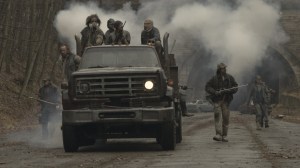Anna Kendrick’s debut feature — 2003’s Camp — might have been directed by veteran actor Todd Graff and produced by Danny DeVito, but it was hardly a vacation. According to Kendrick, the film was done so cheaply that most of the cast stayed in the summer camp where the movie took place, and she got paid less than $100 per day. The movie would kick off a long career of musical and musical-adjacent films for Kendrick, who would go on to make both the Pitch Perfect franchise and the cult classic Scott Pilgrim vs. the World.
Videos by ComicBook.com
The comments on Camp came from a video interview with Vanity Fair, in which the actor looked back at some of her most notable roles and provided contemporary commentary on them. Needless to say, most people skipped right to the Twilight bits, but it’s definitely worth taking a look at where Kendrick got her start.
“I’m supposed to be dressed up like a middle-aged woman in this scene, and I still look like I’m 12 years old,” Kendrick said. “This was my first movie. This was a non-union film. I got paid $75 a day, and only on the days when I was acting. Everyone in this movie went up and lived in that camp basically, and we were all just up there. There was no cell service, no wifi, basically the fact that we had running water was a miracle. So it wasn’t the glamorous, money-making prospect that I hoped my first movie would be.”
You can see the video below.
In Camp, after a series of Broadway flops, songwriter Bert Hanley (Don Dixon) goes to work at a musical camp for young performers. Inspired by the kids, he finds an opportunity to regain success by staging an altogether new production.
The movie, from IFC Films, earned around $2.5 million at the box office, and then went to DVD and did reasonably well in a world where there were still hundreds of Blockbuster and Family Video stores. In 2015, Graff crowdfunded a sequel, which was to be called Camp 2: Freaks in Nature. While never completed, that movie would have referred to Camp as a movie filmed at the camp, rather than true events that happened in the past, which would have allowed him to easily use all-new characters without raising any questions about what happened to everyone else in the intervening decade.








